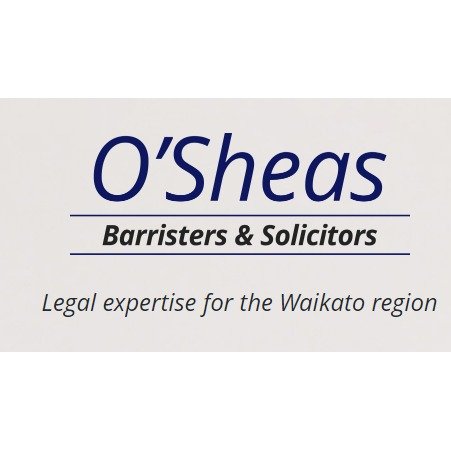Best Public-Private Partnerships (PPP) Lawyers in Hamilton
Share your needs with us, get contacted by law firms.
Free. Takes 2 min.
List of the best lawyers in Hamilton, New Zealand
About Public-Private Partnerships (PPP) Law in Hamilton, New Zealand
Public-Private Partnerships, commonly known as PPPs, are collaborative agreements between government entities and private sector companies to deliver public infrastructure, services, or projects. In Hamilton, New Zealand, PPPs have become a popular way to develop large-scale initiatives like schools, transport systems, healthcare facilities, and community assets. Under a PPP arrangement, the private sector typically finances, builds, and sometimes operates public infrastructure or services, while the public sector ensures that community needs and standards are maintained. These partnerships are designed to combine the strengths of both public oversight and private-sector efficiency, while sharing risks and benefits between both parties.
Why You May Need a Lawyer
The legal landscape surrounding PPPs is complex, often involving multiple contractual obligations, regulatory requirements, and risk-sharing frameworks. You may need legal assistance in several scenarios, such as:
- Negotiating PPP contracts and understanding your rights and obligations
- Ensuring compliance with New Zealand law and local Hamilton regulations
- Managing disputes between public bodies and private partners
- Assessing liabilities, guarantees, and performance obligations
- Advising on procurement processes and tendering rules
- Reviewing financing arrangements and project risk allocations
- Seeking advice on project delivery models and public sector involvement
- Handling termination or renegotiation of PPP agreements
Obtaining tailored legal advice can help you avoid costly mistakes, ensure all legal and compliance issues are addressed, and protect your interests throughout the PPP lifecycle.
Local Laws Overview
Public-Private Partnerships in Hamilton are governed by a combination of New Zealand national legislation, local bylaws, and contract law principles. Some of the key legal frameworks relevant to PPPs in Hamilton include:
- Public Finance Act 1989 and its amendments, which govern government finances and expenditure
- Local Government Act 2002, which regulates the powers and responsibilities of local councils, including Hamilton City Council
- Resource Management Act 1991, covering land use, environmental approvals, and planning permissions
- Building Act 2004, setting out building compliance, safety, and consent requirements
- New Zealand’s government procurement rules, which outline fair and transparent tendering and contracting for public projects
- Specific contractual terms negotiated between the public and private sector in any PPP deal
Locally, the Hamilton City Council may also have additional policies and guidelines for PPP arrangements to ensure they align with community goals, public interests, and sustainable development strategies.
Frequently Asked Questions
What is a Public-Private Partnership in New Zealand?
A PPP is a contractual arrangement in which the public sector partners with private companies to finance, develop, operate, or maintain public infrastructure or services. It spreads the responsibilities and risks between both sectors.
Who can enter into a PPP in Hamilton?
Both the Hamilton City Council and the New Zealand government can initiate PPPs. Private companies, investors, and consortiums with relevant experience and capacity may participate as the private partner.
What are the benefits of PPPs for the community?
PPPs can bring in private investment, accelerate infrastructure delivery, allow sharing of expertise, and potentially improve efficiency and innovation in public services.
Are there risks involved in PPP projects?
Yes, risks include financial overruns, service delivery failures, contract mismanagement, and possible disputes between the partners. Legal advice is essential to properly allocate and manage these risks.
How does the procurement process work for PPPs?
PPP projects are typically procured through a competitive tendering or bidding process, in accordance with national and local government procurement rules. This process is designed to be transparent and ensure value for money.
Can PPP agreements be renegotiated or terminated?
Yes, PPP contracts may allow for renegotiation or early termination under specific conditions. Both parties need to understand the contract terms and the legal implications of any changes.
What happens if there is a dispute in a PPP project?
Disputes are usually managed according to dispute resolution clauses in the PPP contract. Options may include negotiation, mediation, arbitration, or court proceedings, depending on the situation.
Does Hamilton City Council support PPP projects?
Yes, the council may support PPP projects that align with community needs, present value for money, and meet regulatory requirements. Each project is assessed on a case-by-case basis.
What legal documents are required for a PPP?
Key documents often include a project agreement, financing documents, operational and maintenance contracts, and government approvals or consents. A lawyer can help draft and review these documents.
How can I ensure my PPP project complies with environmental regulations?
You must seek appropriate permits, consents, and assessments under laws like the Resource Management Act 1991. Legal experts can guide you through compliance, public consultation, and reporting requirements.
Additional Resources
For further information and support regarding Public-Private Partnerships in Hamilton, consider the following resources:
- Hamilton City Council - for local PPP guidelines, project announcements, and tenders
- New Zealand Treasury - Infrastructure Transactions Unit (ITU) - oversees national PPP policy and advice
- Ministry of Business, Innovation and Employment (MBIE) - for government procurement rules and guides
- New Zealand Law Society - to find accredited lawyers with PPP experience
- Resource Management Act (RMA) information for environmental law compliance
Next Steps
If you are considering entering into a Public-Private Partnership in Hamilton, or if you are already engaged in a PPP project and require legal support, consider the following steps:
- Clearly identify your role and objectives in the PPP arrangement
- Gather all relevant project documents, contracts, and correspondence
- Consult a legal professional with specialised experience in PPPs, infrastructure, and local government law
- Discuss your goals, concerns, and any potential risks with your lawyer
- Stay informed about regulatory, financial, and operational requirements throughout the project lifecycle
- Engage with local authorities or central government agencies early in the process to ensure compliance
Taking these proactive steps can help you navigate the complexities of PPPs, protect your interests, and contribute to the successful delivery of public infrastructure and services in Hamilton.
Lawzana helps you find the best lawyers and law firms in Hamilton through a curated and pre-screened list of qualified legal professionals. Our platform offers rankings and detailed profiles of attorneys and law firms, allowing you to compare based on practice areas, including Public-Private Partnerships (PPP), experience, and client feedback.
Each profile includes a description of the firm's areas of practice, client reviews, team members and partners, year of establishment, spoken languages, office locations, contact information, social media presence, and any published articles or resources. Most firms on our platform speak English and are experienced in both local and international legal matters.
Get a quote from top-rated law firms in Hamilton, New Zealand — quickly, securely, and without unnecessary hassle.
Disclaimer:
The information provided on this page is for general informational purposes only and does not constitute legal advice. While we strive to ensure the accuracy and relevance of the content, legal information may change over time, and interpretations of the law can vary. You should always consult with a qualified legal professional for advice specific to your situation.
We disclaim all liability for actions taken or not taken based on the content of this page. If you believe any information is incorrect or outdated, please contact us, and we will review and update it where appropriate.

















